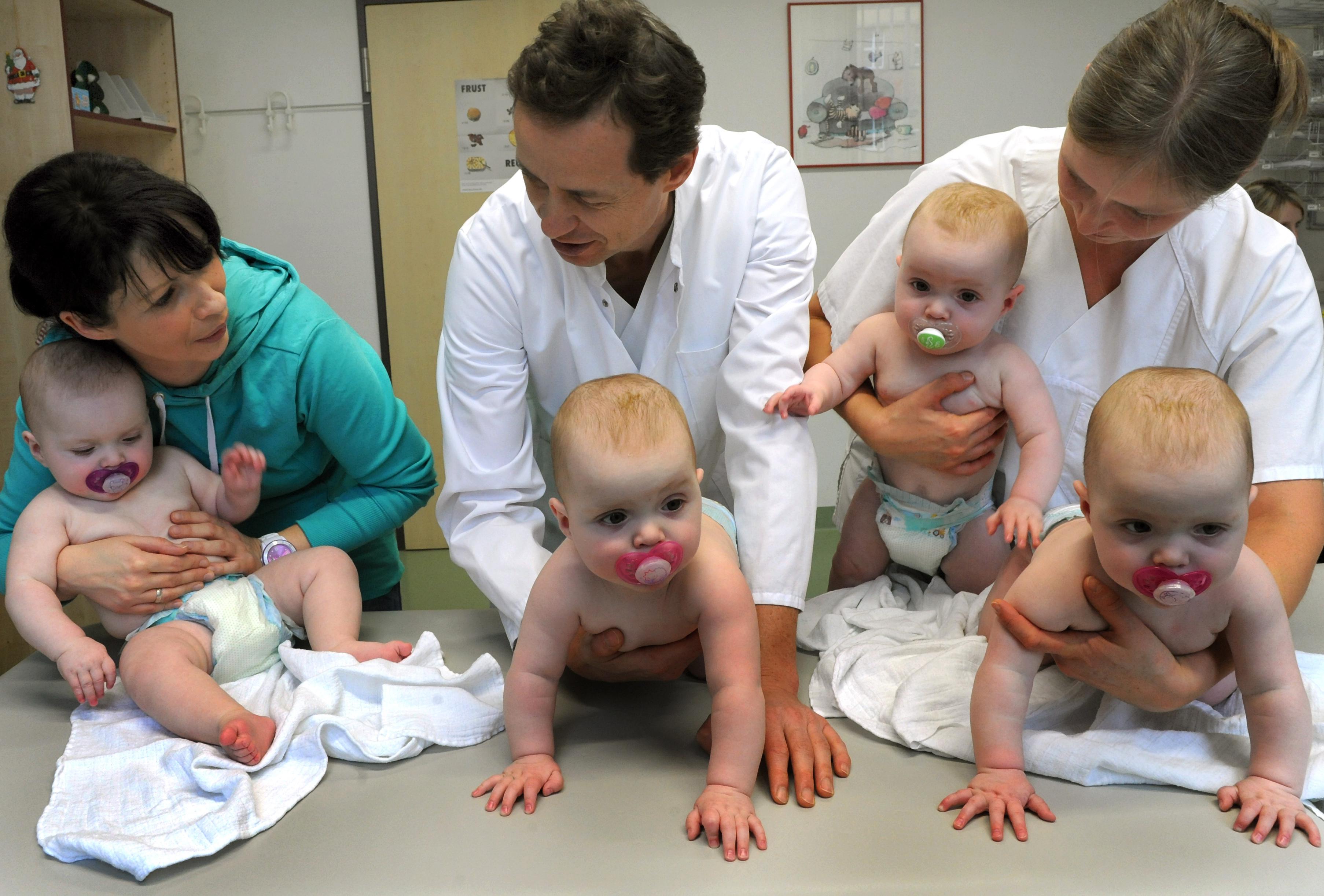In Sunday’s New York Times, med student and new mom Anna Jesus wrote about having a child in her 20s while still in graduate school. She thought she would wait until after her training to conceive, but a fertility problem appeared when she was in her mid-20s, so she and her husband decided to try for a child while they had age on their side. The takeaway from her piece is that sometimes it’s worth considering having a kid before your career is launched.
In response to Jesus’ piece, a woman wrote into the Times’ parenting blog Motherlode about how she made a similar choice and was appalled by people’s lack of support. Even in a place where they were training obstetricians and midwives, the woman’s “program viewed my pregnancy as a personal issue I was having (I might say, ‘caused’ for myself) and that I shouldn’t expect any special accommodations.”
Let’s get out of the way that the lack of support for pregnant women in the United States is appalling (as I’ve gone on about before). And also let’s make the disclaimer that when you decide to have a child is deeply idiosyncratic, and there are so many factors that go into it—economic, romantic, emotional—not to mention the fact that you can’t just schedule in a baby like you schedule a vacation. No matter how old you are, you can’t assume you will conceive like clockwork.
All that said, I do think there’s something to Jesus’ argument that perhaps ambitious women in their 20s who also want kids should consider having them sooner rather than later. The lack of support for pregnant women in the U.S. is not going to change in the very near term, and that goes for 20-year-olds and 40-year-olds. Many women are in the middle of the career ladder when they get pregnant in their early 30s, and in a cruel twist, that’s when a lot of workers have the least flexibility. You’re at the whim of your bosses, and you don’t have much wiggle room. If you wait until you’re a high-ranking exec in your late 30s or early 40s to have kids—like CEOs and hot-button targets Marissa Mayer and Sheryl Sandberg did—you get to call the shots about your maternity leave, but you may struggle with fertility issues. As Jesus points out, fertility plummets after age 37. (I used to think it was sexist to assume that women didn’t know their fertility waned as they aged, but in fact studies show that women vastly underestimate how much age affects their ability to conceive.)
If you have a kid when you’re at the beginning of your career, even while you’re still in school, you may have less responsibility and therefore more flexibility. (As Jesus puts it, “I was thankful I wasn’t the intern or resident, responsible for more than twice my number of patients.”) Yes, you have less money, and babies are expensive. But I notice that women of my generation often feel like they have to have all their ducks absolutely in a row before they can even think of getting pregnant. You need the right job, you need to live in the right school district, you need the right amount of money, you need the right home, you need the right educational toys.
If having children is very, very important to you—and it’s certainly not that important for a lot of women—maybe take a page from parents of the ‘60s and ‘70s. I’m sure you’ve heard stories about how Uncle Tim slept in a drawer in the bedroom for a while or how mom drove a beat up jalopy that died in the driveway every three weeks. It might not be Baby Bjorn ad perfect, but it may relieve some infertility and career woes that a lot of women experience down the road.
